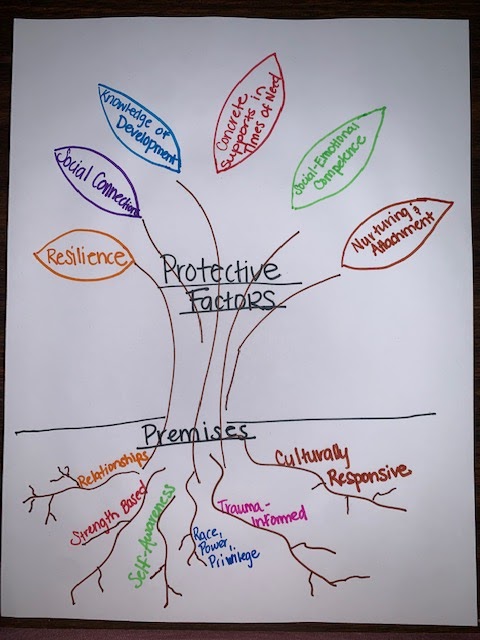Review of the Six Guiding Premises
Families and young children are best supported by professionals who understand and recognize the importance of self-awareness and self-care in their own professional practice.
The way we can look at how these concepts are aligned is to think of the Protective Factors as the leaves on the tree and the Premises as the roots of the tree. This visual shows the connection between the Protective Factors to the Premises and helps explain how the Premises lay the foundation for professionals to understand how to incorporate the Protective Factors into the work you are doing.
Factors that impact Social Connections
Relationships
Attachments, connections and relationships with your co-workers can be a source of professional growth and learning. Some examples are helping your co-workers, sharing educational tools and resources, offering to observe each other and provide support when faced with challenges and offer ongoing encouragement by recognizing what they are doing well.
Strength-based
Positive connections to people can help you recognize the things that you are doing well. Catch a co-worker doing something good and be intentional in telling them.
Self-awareness
Know who your positive supports are and realize not all social connections are positive. For example, try not to engage with a person you know can be negative first thing in the morning because this interaction could impact your mood.
Race, Privilege and Power
People engage in connections in different ways. Understanding that race, other identities, privilege and power shape your role as a professional and how you connect with the families you work with.
Trauma-informed
Allow time to build rapport before expecting families to feel comfortable sharing personal details about themselves or their child.
Culturally Responsive
Take into account your own culture when building connections with others. Having positive relationships that provide emotional, informational and spiritual support can help you to feel secure and confident in sharing the joys, pains and uncertainties that come with being a caregiver.

